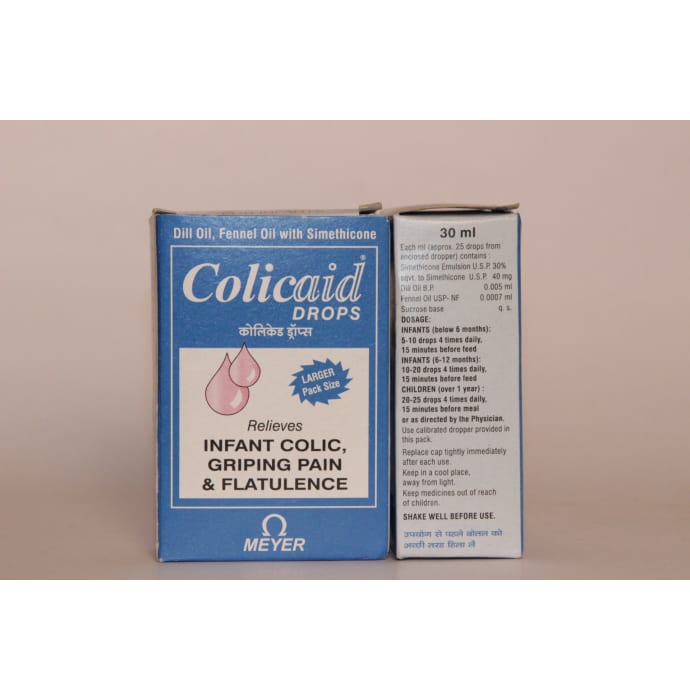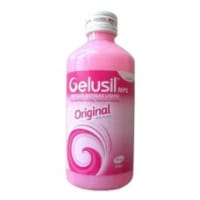NOTICE: unsafe with : Alcohol
USED FOR:
Acidity
Heartburn
Intestinal ulcers
COMPOSITION:
Lansoprazole (30mg)
Therapeutic Uses:
gastro intestinal

CAUTION
Taking a large amount of alcohol can increase acidity and cause acid reflux in the food pipe causing heartburn. This would decrease the effect of this drug and can aggravate your underlying condition.

PROBABLY SAFE
Lupizol 30mg Capsule is probably safe to use during pregnancy.Animal studies have shown low or no adverse effect on the foetus, however, there are limited human studies. Please consult your doctor.

Lupizol 30mg Capsule is probably safe to use during lactation. Limited human data suggests that the drug does not represent a significant risk to the baby.

Lupizol 30mg Capsule may make you feel dizzy, drowsy or affect your vision. Do not drive until your vision is clear.

SAFE
Lupizol 30mg Capsule is safe to use in patients with kidney disease. No dose adjustment of Lupizol 30mg Capsule is recommended.

Lupizol 30mg Capsule should be used with caution in patients with severe liver disease. Dose adjustment of Lupizol 30mg Capsule may be needed. Please consult your doctor.
Uses of Lupizol Capsule
Lupizol 30mg Capsule is used in the treatment of acidity, heartburn, intestinal ulcers and stomach ulcers.
How to use Lupizol Capsule
Take this medicine in the dose and duration as advised by your doctor. Swallow it as a whole. Do not chew, crush or break it. Lupizol 30mg Capsule is to be taken with food.
How Lupizol Capsule works
Lupizol 30mg Capsule is a proton pump inhibitor (PPI). It works by reducing the amount of acid in the stomach which helps in relief of acid-related indigestion and heartburn.
Common Nausea, Headache, Abdominal pain, Constipation, Flatulence, Diarrhoea.
Expert advice for Lupizol Capsule
Inform your doctor if you do not feel better after taking it for 14 days as you may be suffering from some other problem that needs attention. Lupizol can decrease magnesium levels in blood. Get your magnesium levels checked regularly. You may need a magnesium supplement or need to discontinue your medicine. Inform your doctor if you are suffering from osteoporosis as Lupizol can weaken your bones by decreasing calcium levels in blood. You may need a calcium supplement, preferably calcium citrate. Lupizol is a well-tolerated medicine and provides relief for a long time. It may take a few days to show its effect. You can take an antacid for a quick relief during this time unless your doctor has asked you not to use them. Once you start feeling better, do not stop taking your medicine. Take it for the duration as advised by your doctor
Q. What are the side effects of Lupizol use in infants?
Use of Lupizol in infants (children < 1 year of age) may commonly cause diarrhea, constipation, stomach upset, and flatulence. It may make infants irritable and inconsolable and difficult to sleep. Long-term use may cause inflammation of the pancreas, irritable colon, stool discoloration, growth of fungus in food pipe, stomatitis, abdominal swelling, mucosal atrophy of the tongue and decrease absorption of vitamins and minerals. Some may have severe allergic reactions also.
Q. Can I take Lupizol with clopidogrel?
Lupizol can be safely taken with clopidogrel. No clinically important changes in the action of clopidogrel have been seen when Lupizol and clopidogrel are used together.
Q. How is Lupizol given through the nasogastric tube?
Open the Lupizol capsule and empty the granules into a syringe. Mix the contents with apple juice in the syringe and attach it to the nasogastric (NG) tube and give directly into the stomach. Once given, flush the NG tube with more apple juice to clear the tube.
Q. Does long term use of Lupizol is associated with side effects?
Patients taking Lupizol for a long period of time (a year or longer) may have decreased calcium levels leading to an increased risk of fractures of the hip, wrist, or spine. It can also decrease magnesium levels when used for more than 3 months. Long-term use may also cause inflammation of stomach lining (atrophic gastritis). Take Lupizol only at the dose and for duration advised by your doctor
Q. Why does Lupizol cause diarrhea?
Use of Lupizol lowers the natural stomach acid which normally helps to kill bacteria. So, use of Lupizol leads to overgrowth of the harmful bacteria which can cause diarrhea. This is known as Clostridium difficile–associated diarrhea (CDAD). Inform your doctor if you have loose stools many times in a day and for many days with stomach cramps and fever.
Q. Does Lupizol cause burping?
Burping also known as belching or eructations is a side effect seen with Lupizol use. Other common side effects associated are nausea, abdominal pain, constipation, diarrhea, and flatulence.
Q. Is Lupizol a CYP3A4 inhibitor?
No, Lupizol does not inhibit CYP3A4, it inhibits other subtypes of CYP enzymes namely, CYP2C19 and CYP2C9. However, there are no significant drug-drug interactions because of this property.
Q. Is Lupizol safe to use?
Lupizol is safe to use when taken at doses and for a duration strictly as advised by the doctor. However, there are some common side effects associated with its use includes nausea, abdominal pain, constipation, diarrhea, and flatulence.
Q. Why does Lupizol cause a sore throat?
Sore throat occurs in less than 1% of the patients who take Lupizol but the reason for the same is not known.
Q. Can I use Lupizol with antacids?
Lupizol can be taken with antacids like aluminum hydroxide, magnesium carbonate or sodium bicarbonate. However, antacids should be taken two hours before or one hour after taking Lupizol because it requires a lower pH for its action and antacids can increase the pH of the stomach and decrease the action of Lupizol.
Q. Why do Lupizol cause vitamin D deficiency and osteoporosis?
Lupizol decreases calcium absorption leading to calcium deficiency. So, it increases the risk of osteoporosis (thinning of bones) and bone fractures on long-term use, like hip, wrist or spine fractures. Inform your doctor if you have osteoporosis or if you are taking corticosteroids (they increase the risk of osteoporosis) before starting your therapy. Take enough calcium and vitamin D to reduce the risk.
Q. Does Lupizol increase appetite (make you hungry)?
Yes, Lupizol can increase appetite and make you feel hungry. This is reported to be an uncommon side effect seen with the use of Lupizol.
Q. What is the role of Lupizol in the treatment of H. pylori?
Lupizol is used along with antibiotics for the treatment of H.Pylori infection. It works by decreasing stomach acid volume and breakdown and washout of antibiotics leading to an increase in antibiotic concentration and tissue penetration. It also helps in the symptomatic relief by decreasing associated acidity, reflux, and heartburn.
Q. Is Lupizol a vesicant?
A vesicant is a substance which causes blistering and tissue injury. Lupizol is not a vesicant. It is a proton pump inhibitor used for the treatment of acidity, heartburn, intestinal ulcers and stomach ulcers.
Q. Why does Lupizol cause weight gain?
Weight gain is reported in less than 1% of the patients taking Lupizol but the exact cause is unknown. One of the possible explanation is higher food intake once the reflux symptoms are relieved. Lifestyle modifications such as proper diet and avoidance of overeating should be observed to avoid weight gain.
Q. Can I take Lupizol with ibuprofen?
Yes, Lupizol can be taken with ibuprofen. Lupizol can be used to prevent ibuprofen (painkillers) induced gastritis and stomach ulcers by decreasing the production of acid in the stomach. Moreover, there are no clinically significant interactions of Lupizol with ibuprofen.
Q. Does Lupizol treat irritable bowel syndrome (IBS)?
Lupizol is not routinely used for the treatment of irritable bowel syndrome (IBS). It is given if there is associated dyspepsia or increased stomach acid secretion. IBS is managed with a combination of antispasmodics (to relieve stomach pain), laxatives (to relieve constipation), and anti-motility drugs (to relieve diarrhea).
Q. Can I take Lupizol with aspirin?
Yes, you can take Lupizol with aspirin. However, Lupizol decreases stomach acid and makes stomach juices alkaline. This can decrease absorption of aspirin and break the enteric coating of the formulations. However, these interactions are minor and can be avoided by taking the medicines at a time gap.
Q. Can I take Lupizol with prednisolone?
Lupizol can be taken with steroids like prednisolone. Lupizol is used to prevent prednisolone (steroid) induced gastritis and stomach ulcers by decreasing the production of acid in the stomach. No drug-drug interactions or harmful effects have been seen when Lupizol is used with prednisolone.
Q. Can I take Lupizol with hyoscine?
Yes, hyoscine can be taken with Lupizol. They are given together as hyoscine can help in better relief when given with Lupizol. However, some studies in normal individuals have also shown that hyoscine can decrease the effect of Lupizol. So, it is advisable to consult your doctor before taking them together.
Q. Is Lupizol used to treat a cough?
Lupizol is used for the treatment of acidity, heartburn, intestinal ulcers and stomach ulcers and can help in providing relief in a chronic cough that may happen due to acid reflux. However, it is not used to treat a cough due to cold, flu or throat infections.
Q. While taking Lupizol, which foods should be avoided?
You should preferably avoid foods that cause acidity and heartburn as they would aggravate your disease condition, for example: fried foods, prepared in butter or oil, fat rich foods, tomato-based foods and juices, caffeinated drinks like cola, tea, drinks from citrus fruits like lemon water or orange juice and alcohol-containing drinks.
Q. Does Lupizol cause dry mouth?
Yes, use of Lupizol is associated with dry mouth, however, this is not a very common side. Some common side effects seen with Lupizol use are nausea, abdominal pain, constipation, diarrhea, and flatulence.
Q. Does Lupizol make you tired?
Yes, use of Lupizol makes you feel tired (fatigue) very commonly. Some other common side effects seen with its use are nausea, abdominal pain, constipation, diarrhea, and flatulence.
Q. Is Lupizol used to treat nausea?
Lupizol is used for the treatment of acidity, heartburn, intestinal ulcers and stomach ulcers and can help in providing relief in nausea that may happen due to acid reflux. It is not used to treat nausea due to any other cause. Rather, nausea is one of the most common side effect of Lupizol.
Q. Can I take Lupizol with paracetamol?
Yes, you can take Lupizol with paracetamol. Lupizol is used to prevent paracetamol (painkillers) induced gastritis and stomach ulcers by decreasing the production of acid in the stomach. There are no clinically significant drug-drug interactions or harmful effects seen when they are used together.
Q. IS it safe to take Lupizol with vitamin C (ascorbic acid)?
Yes, Lupizol can be taken with vitamin C (ascorbic acid). There are no drug-drug interactions or any harmful effects seen when they are used together.
Q. Is it safe to take Lupizol with naproxen?
Lupizol can be taken with naproxen. No drug-drug interactions or any harmful effects have been reported when they are used together.
Q. Is Lupizol used for children?
Yes, Lupizol is used in the management of gastroesophageal reflux disease (GERD) and erosive gastritis in children. However, the safety and effectiveness of Lupizol are established only in children between 1 to 17 years of age.
Q. Is Lupizol a controlled substance?
Lupizol is not a controlled substance. It's a prescription medicine and is available on providing a valid prescription by a doctor.
Q. Is Lupizol a beta blocker?
No, Lupizol is not a beta blocker. It is a Proton pump inhibitor is used in the treatment of acidity, heartburn, intestinal ulcers and stomach ulcers.
Q. Is Lupizol a probiotic?
No,Lupizol is not a probiotic. It is a Proton pump inhibitor is used in the treatment of acidity, heartburn, intestinal ulcers and stomach ulcers. A probiotic is a substance, which is helpful in diarrhea.
Q. Is Lupizol a narcotic substance?
Lupizol is a not a narcotic substance and has not been reported to have any abuse potential. Lupizol does not get you high and does not cause any addiction as no withdrawal symptoms have been reported when you stop taking this drug.
Q. Is Lupizol an antibiotic?
No, Lupizol is not an antibiotic. It is a Proton pump inhibitor is used in the treatment of acidity, heartburn, intestinal ulcers and stomach ulcers. An antibiotic is a medicine, which is used to treat infections.
Q. Is Lupizol a sulfa drug?
No,Lupizol is not a sulfa drug. It is a Proton pump inhibitor is used in the treatment of acidity, heartburn, intestinal ulcers and stomach ulcers.
Q. Is Lupizol a steroid?
No, Lupizol is not a steroid. It is a Proton pump inhibitor is used in the treatment of acidity, heartburn, intestinal ulcers and stomach ulcers.
Q. Is Lupizol a NSAID?
No, Lupizol is not a NSAID. It is a Proton pump inhibitor is used in the treatment of acidity, heartburn, intestinal ulcers and stomach ulcers. NSAIDs are painkillers, which are used to treat pain.
Q. Is Lupizol a statin?
No, Lupizol is not a statin. It is a Proton pump inhibitor is used in the treatment of acidity, heartburn, intestinal ulcers and stomach ulcers.
Q. Is Lupizol a laxative?
No,Lupizol is not a laxative. It is a Proton pump inhibitor is used in the treatment of acidity, heartburn, intestinal ulcers and stomach ulcers. A laxative is a medicine, which is used to treat constipation.
Q. Is Lupizol a diuretic?
No,Lupizol is not a diuretic. It is a Proton pump inhibitor is used in the treatment of acidity, heartburn, intestinal ulcers and stomach ulcers. A diuretic is a medicine, which removes excess water and electrolytes from the body through urine.
Q. Is Lupizol a prescription drug?
Lupizol is a prescription medicine and is available on providing a valid prescription by a doctor.
Q. Is Lupizol an H2 blocker?
No,Lupizol is not an H2 blocker. It is a Proton pump inhibitor is used in the treatment of acidity, heartburn, intestinal ulcers and stomach ulcers.
Cubit Healthcare
₹5.11/Capsule Out of stock


 Lupizol 30mg Capsule
Lupizol 30mg Capsule  Bookmark
Bookmark





















